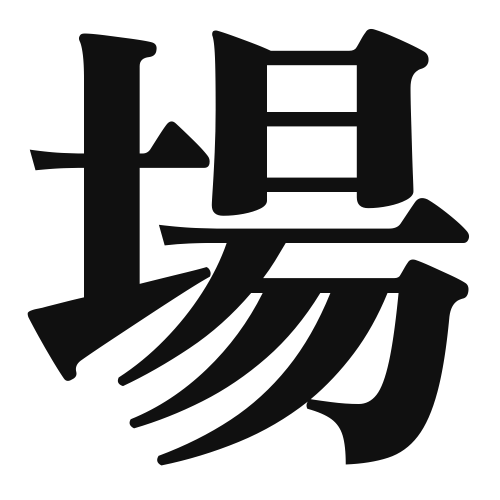1. Overview of Meaning
The kanji “場” (ba) generally means “place” or “location.” It refers to a physical space or setting where events occur or activities take place.
2. Origin and Radicals
Formation of the Kanji: The kanji “場” is a compound character, which combines elements that convey its meaning. It is classified as a compound ideograph (会意文字), as it combines the radical for “earth” (土) with the character “場” (which relates to a specific type of place).
Radical: The radical of “場” is 土 (tsuchi), which means “earth” or “ground,” indicating a connection to physical spaces.
3. Examples of Usage
Common Words and Phrases: Some frequently used words that include “場” are:
- 場所 (ばしょ, basho) – place
- 現場 (げんば, genba) – scene or site
- 広場 (ひろば, hiroba) – square or plaza
Example Sentences in Daily Conversation:
- この場所はとても静かです。 (このばしょはとてもしずかです。) – This place is very quiet.
- 事故の現場を見に行きました。 (じこ の げんば を みに いきました。) – I went to see the scene of the accident.
4. Synonyms and Antonyms
Similar Kanji: A similar kanji is “所” (ところ, tokoro), which also means “place” but is often used in a more abstract sense, such as referring to a location in a broader context.
Antonyms: An antonym of “場” could be “無” (む, mu), which means “nothing” or “absence,” indicating a lack of place or space.
5. Cultural and Historical Background
Connection to Japanese Culture: The concept of “場” is significant in Japanese culture, as it relates to various traditional practices and social gatherings, such as festivals held in public squares.
Proverbs and Idioms: One common expression is “場の空気を読む” (ばのくうきをよむ, ba no kuuki wo yomu), which means “to read the atmosphere of the place,” emphasizing the importance of understanding social contexts in interactions.
